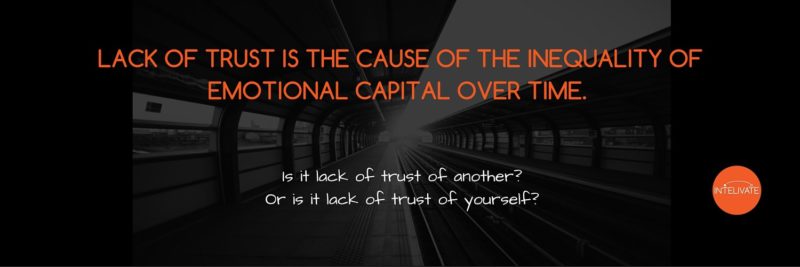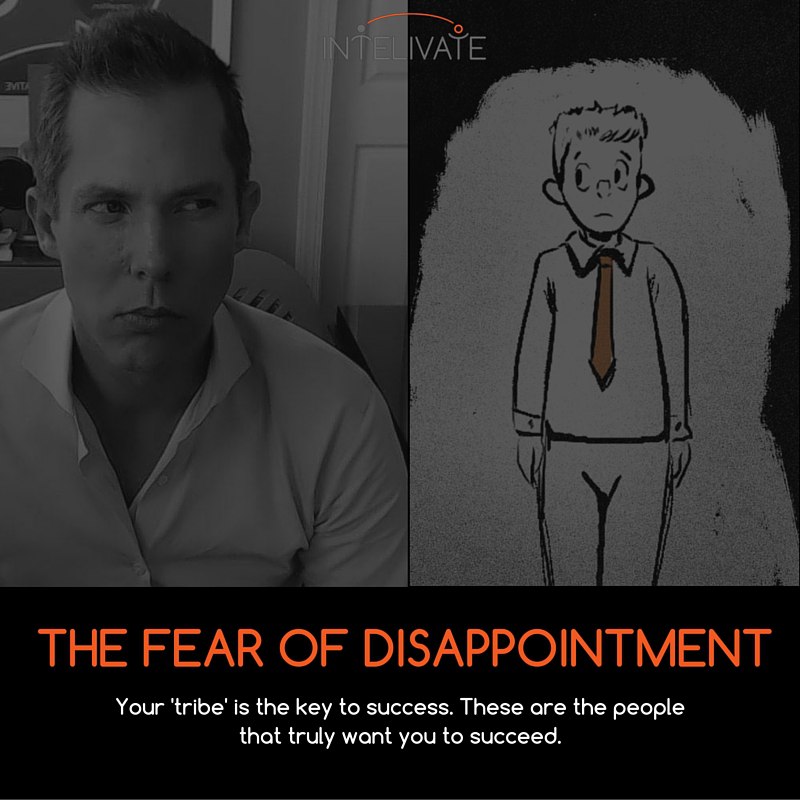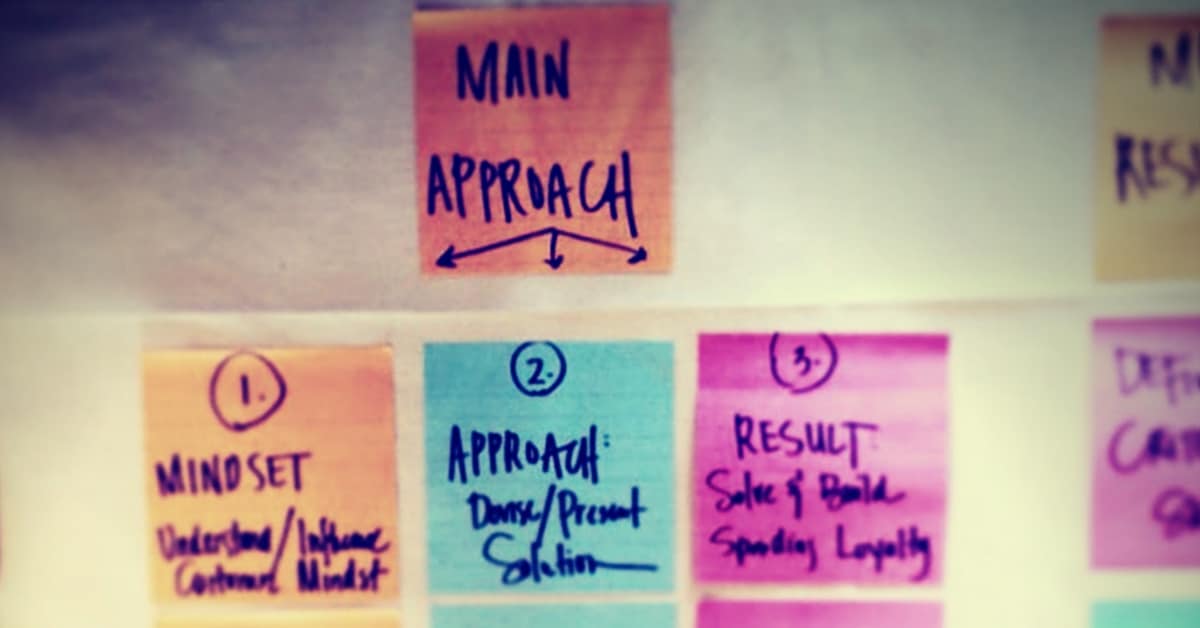Emotional capital is a critical component to building influence and strong relationships. I’ll explain what emotional capital is and then give you five ways to develop your emotional capital wealth to increase trust, leadership influence, and the strength of your relationships.
During my first start-up, my mentor said to me while waiting for a flight, “You have a real talent for building emotional capital. You naturally build a strong emotional connection with people.” I did not have a clue as to what he meant and didn’t care at the time.
I was exhausted from virtually no sleep during supporting system conversions and just wanted to get home – or throw up. I could not figure out which one I was feeling at the time. You business travelers get it.
Days later – and once I got a little sleep – I asked him what he meant.
What was this emotional capital thing and do I need a shot for it?
He said,
“Emotional capital allows you to be able to mess up occasionally and still have life with a client or in a relationship.
Over the years, I’ve realized how important the wealth of emotional capital and connection is to not only developing influence but in relationships as a whole.
What is Emotional Capital?
Emotional capital is a level of loyalty built over time and experience. At its core, it is an emotional connection that develops respective value:
- Emotional capital is a currency that both participants in a relationship hold.
- Emotional capital is built over time and sustained by consistent, positive experience. Leadership and trust are huge components of emotional capital.
- Emotional capital is regularly exchanged between any participants in a relationship. Think of it as the stock exchange.
There are times of investing in capital, and there are times of withdrawal of money.
Think about your closest relationships. Whether you know it or not, the emotional bond and connection along with the sustainability of the relationship are attributed to mutual investments of emotional capital. The more emotional capital you have, the stronger and more sustainable is the emotional connection. Increases in emotional capital wealth increase the sustainability of the relationship as well.
As humans, we need healthy and functional relationships to survive. The same goes for a leader. Without these people – and a strong emotional connection – a leader will never inspire.
Emotional capital is powerful.

Emotional capital is a currency of building influence and relationship wealth.
Emotional capital is like money. The most sustainable investments are built slowly over time and exchanged at the absolute right times.
Sometimes you have more emotional capital and sometimes you have less. This market is just like any other wealth exchange market, and it has its ups and downs.
Wealth in a relationship builds when there is a relatively equal exchange of emotional capital over time. The more you look to the long-term as opposed to reacting to the short term, the stronger and more sustainable your emotional capital investments become.
If you have drained your emotional capital, it is almost definitely due to unhealthy relationships.
Emotional capital isn’t endless but it is relative.
Like any currency, your emotional capital is limited. When you exhaust it through bad investments, you experience emotional burnout. As a leader, if you use all of your team’s emotional capital, you experience performance burnout.
Although every relationship has emotional capital, the more time and experience you have in a relationship, the more trust you likely have in the relationship. The higher and deeper your confidence is with someone, the more likely they are to invest their emotional capital in you.
Do you see the trend here?
Every relationship is different, and there are intervals of inequality of emotional capital on either end of the relationship. That is normal. That is life.
However, if the inequality of emotional investment continues for too long, unhealthy relationships develop. By the time it is time to sell your investment, you are already at a loss.
That is the law of economics and markets. The emotional capital market is no different.

Emotional capital is critical to happiness, health, and success.
Connections with people have been proven to be necessary for happiness and health.
In business, the loyalty you build in leadership is a critical component to sustainable success.
In other words, in life, leadership, and business, you cannot reach your real potential without investing in and nurturing relationships. It’s impossible. Because your emotional capital is a finite resource, how you invest it is critical to your success and happiness.
Emotional capital is the core of building a leadership following and building influence.
A leadership following is critical in building influence over time. The ability to build a strong following is one of the reasons I believe great leaders are born not made.
What is a leadership following?
An individual (or I have seen entire teams) follow the leader to a different function or organization. Emotionally (and that translates to functionally), the person or team does not work for the organization but rather they work for the leader. That’s why a leadership following and emotional capital are key to a leader’s success and building influence. You’ll soon learn how why that makes emotional capital so powerful.
These are the people that will jump through hoops-of-fire to make you successful. A leadership following wants you to be successful. As long as you are successful, the members of your following feel success themselves. They see themselves as failures if you see yourself as a failure.
These are also the people that will jump through the same hoops during bad times and come together and protect.
Their biggest fear? Disappointing you – their leader.

A leadership following is powerfully influential and built on emotional capital and connection. The exact same principles hold true in your personal relationships.
The Powers and Benefits of Emotional Capital
The wealth emotional connection as a leader – and as an individual – inspires in a powerful way. Here are just a few of the benefits of emotional capital.
1. Emotional capital inspires people to invest in your success
Loyalty builds a following, and it starts with the emotional connection. You have individuals/teams that are willing to go above and beyond to secure YOUR success.
Their jobs transition to passion and work becomes a hobby.
The leader becomes a source of inspiration, and it all begins with a connection built with emotional capital.
2. Emotional capital encourages people and teams to take more risk
You cannot be an extraordinary leader by doing ordinary things. Extraordinary requires taking a risk and a leadership following that benefits from and absorbs some of that risk.
Emotional connection builds the trust and foundation that brings both confidence and desire for others to take that risk with you – all while building influence over time. Think of people who show micromanager characteristics. How loyal are people to these types of leaders?
Your team develops a feeling of ‘indebtedness’ that drives them to desire more risk as long as you are leading it.
Guess what? You develop a mutual indebtedness for their willingness – regardless of the outcome. This is just one example of the where the natural balance of emotional capital happens as a leader.
Empowering people to take risk is one of the most powerful characteristics of a leader.
3. Emotional capital lets people forgive you more easily and with fewer consequences
Forgiving is HUGE and cannot be understated. If you are taking enough risk to be extraordinary, you WILL make mistakes and encounter failures. If you do not, then you are not taking enough risk.
Take comfort that if you have the proper leadership following, the enormous success will compensate for the mistakes and failures. The stronger the emotional connection, the more forgiveness you receive.

How to Build Influence by Building Emotional Capital
Now that you have a solid understanding of what emotional capital is as well as the limits and benefits, how do you build it to influence people?
Here are five ways to build your emotional capital wealth.
1. Focus on individuals.
- A personal emotional connection will roll up to the team level. The more you invest in each, the more cohesive the team will be overall.
- If overall team-level emotional capital is cheap, identify those individuals that require further investment.
- Perception is the reality. Understand and manage perceptions. You should be assessing these frequently at both the team and individual levels.
2. Find commonality.
- Passion, strength, a hobby, a life circumstance or event. Everyone has something in common. Just make sure it is a genuine connection of commonality otherwise, the emotional connection will not be sustainable.
- Leverage that commonality often in interactions and experiences. Again – in an organic and authentic way. You would be surprised at the number of people I have ‘turned’ by focusing on commonality. It can be magical as long as it is genuine.
3. Identify & leverage individual strengths.
- Leverage those strengths across the entire team. Not only is it more efficient, but it also becomes a form of recognition and builds collaboration – all while building influence.
- Everyone wants to be successful, and everyone wants to belong to something.
- This is combining the best of both worlds and will create a wealth of emotional connection.
- Leverage strengths to compensate for your natural deficits.
- This not only allows you to focus on what you do best, including more time to be a leader, it also makes you feel more satisfied and happy.
- Who wants to be doing things that they are not good at or enjoy?
- Ideally, strengths allocation should also be passions or areas of desired growth in a defined career progression plan.
4. Have consistent & value-add interactions.
We get busy, and we get focused. This can be a tough one, especially for leaders with virtual home office jobs. It is something I am always trying to monitor with myself.
- Focus on the value of the interaction as opposed to the length of time of the interaction.
- Focus on the interactions being consistent as opposed to scheduled. Don’t keep track of the time and appointments to gauge how well you are doing with this. I know some of you were going down that path.
- Every interaction should not be scheduled. I will often open my office at the last minute and just have anyone pop in for anything, even if it is to chat about the weekend.
- Every interaction should not be formal.
- Mandatory performance reviews or coaching meetings do not count in this category of building an emotional connection. Leverage those opportunities to build your emotional capital wealth, though.
- Research and implement processes and tools of internal communication that support effective collaboration. This will keep you consistently connected and does so much in building influence as a leader.
5. Be human. Being vulnerable is good.
This is a tough one for many leaders, inherent to the role and perceptions.
- Be personable and relatable. It makes you more likable and builds a deeper emotional connection.
- Don’t be afraid to express and show vulnerabilities. Balance this though as your role is to make your team feel safe and protected.
- Too much display of weakness may diminish that goal.
- Acknowledge and own mistakes. You will feel better, and they will respect you for it. It makes you an actual flesh-and-bones human. GASP!

Final Thoughts on Emotional Capital and Building Influence
There you have it. Now you know the powers and limitations of emotional capital, as well as how to influence people with emotional connection.
Emotional capital goes well beyond leadership power, building influence and performance, however, and is a feeling and the strength of the relationship you have with each – personally and professionally.
A few quick reminders:
- The greater emotional capital wealth you have with people equates to greater emotional capital wealth for the team overall.
- Leaders of leaders – it is IMPERATIVE to encourage emotional capital growth among your leaders and executive teams.
- Proper balance and emotional capital wealth development build a truly unstoppable and unwavering team.
Now go out there and build your wealth of emotional connection and leadership influence!
Related Solutions to Help Building Influence and Emotional Capital
Kris Fannin
Kris Fannin is a passionate change agent in workforce transformation. For more than 25 years, he's had the privilege of partnering with dozens of client organizations and leading hundreds of teams to become powerful influencers.
"Your legacy will be defined by the passion and impact of the people you influence. What do you want your legacy to be?"



